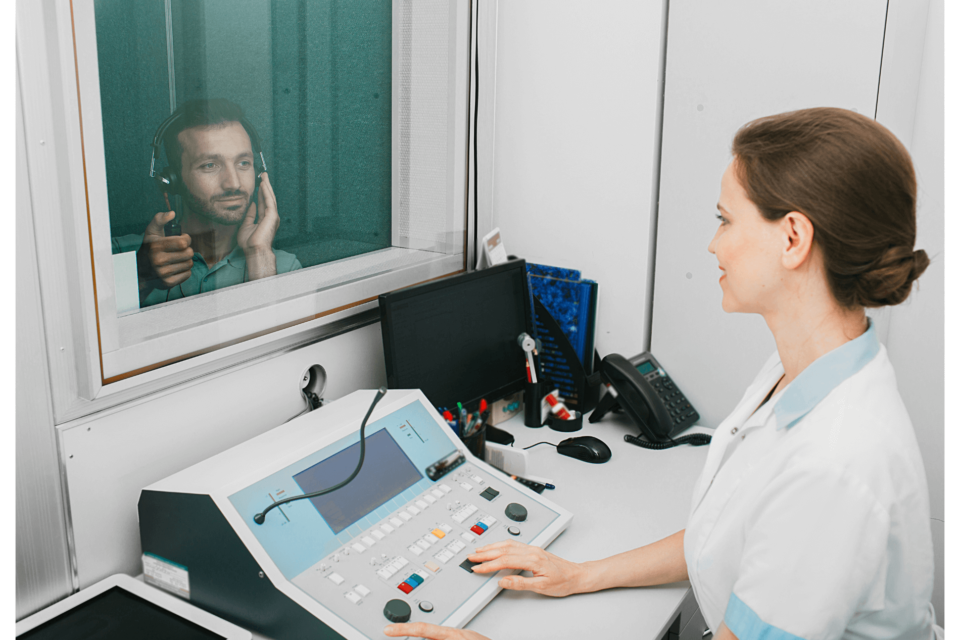- The Emotional Journey of Accepting Hearing Loss - October 25, 2024
- Making a Style Statement with Hearing Aids This Fall - October 15, 2024
- Fireplace Safety and Hearing aids - October 4, 2024
Hearing is an integral part of our daily lives, shaping our interactions, experiences, and overall well-being. Unfortunately, many people tend to overlook the importance of regular hearing checkups, assuming that hearing loss won’t affect them. However, taking an annual hearing test is a proactive step that can benefit individuals of all ages.
Early Detection of Hearing Loss
One of the most compelling reasons to take an annual hearing test is the early detection of hearing loss. Hearing loss often occurs gradually, making it challenging to notice subtle changes in your ability to hear and understand conversations. By undergoing a regular hearing test, any decline in your hearing can be identified and addressed early, preventing further deterioration.
Improved Communication
Clear and effective communication is the foundation of healthy relationships and social interactions. Untreated hearing loss can lead to misunderstandings, frustration, and isolation. Annual hearing tests ensure that you can maintain open and effective communication with your loved ones, colleagues, and the world around you.
Enhanced Quality of Life
Hearing plays a significant role in our enjoyment of life’s simple pleasures. From the laughter of children to the melodies of your favorite songs, hearing enriches our daily experiences. Detecting and addressing hearing loss through annual tests can significantly improve your quality of life, allowing you to fully engage in the world’s soundscape.
Prevention of Cognitive Decline
Recent research has revealed a link between untreated hearing loss and cognitive decline, including conditions such as dementia and Alzheimer’s disease. By taking an annual hearing test and addressing any hearing issues promptly, you may reduce the risk of cognitive decline and its associated challenges.
Safety Concerns
Hearing loss can affect your safety, especially in situations where hearing plays a critical role. This includes detecting alarms, sirens, and warnings in emergencies. Regular hearing tests help ensure that you can stay safe in your daily life.
Increased Work Performance
In the professional sphere, effective communication is crucial. Untreated hearing loss can lead to misunderstandings and reduced work performance. By addressing any hearing issues detected during an annual hearing test, you can maintain your effectiveness in the workplace.
Enhanced Social Life
Social interactions are essential for maintaining a healthy and fulfilling life. Untreated hearing loss can lead to social isolation, as individuals may withdraw from gatherings and events due to communication difficulties. Annual hearing tests can help ensure that you remain an active and engaged participant in social activities.
Customized Hearing Solutions
Annual hearing tests provide you with the opportunity to explore customized hearing solutions. If hearing loss is detected, your hearing health specialist can recommend and tailor hearing aids or other assistive devices to match your specific needs, ensuring that you hear clearly.
Maintenance and Education
Annual hearing tests offer the chance to maintain your hearing aids if you already use them. Regular checkups and cleaning are vital for the longevity and effectiveness of your devices. We’ll also provide ongoing education about hearing health and best practices to safeguard your hearing.
Peace of Mind
Last but not least, annual hearing tests provide peace of mind. Knowing that you’re taking proactive steps to preserve your hearing and overall well-being can alleviate concerns and anxiety related to hearing loss. It’s a small but significant investment in your future.
How to Prepare for Your Annual Hearing Test:
Taking an annual hearing test is a straightforward process. Here’s how you can prepare for your appointment:
- Research Hearing Health Specialists: Choose a qualified and reputable audiologist or hearing care professional.
- Compile Medical History: Gather information about your medical history, including any family history of hearing loss, exposure to loud noises, and current medications.
- Prepare Questions: Be ready to discuss any concerns or questions you may have.
- Hearing Testing: Your hearing test will typically involve a range of assessments, including pure-tone audiometry and speech tests. These tests will help determine the extent of your hearing abilities.
- Review Results: Following your hearing test, your hearing health specialist will review the results with you. If hearing loss is detected, they will discuss potential treatment options and recommendations.
Book Your Next Hearing Test
Annual hearing tests are a simple yet invaluable part of maintaining your overall health and well-being. They give you the chance to learn more about your hearing health, improve communication, and boost your quality of life.

